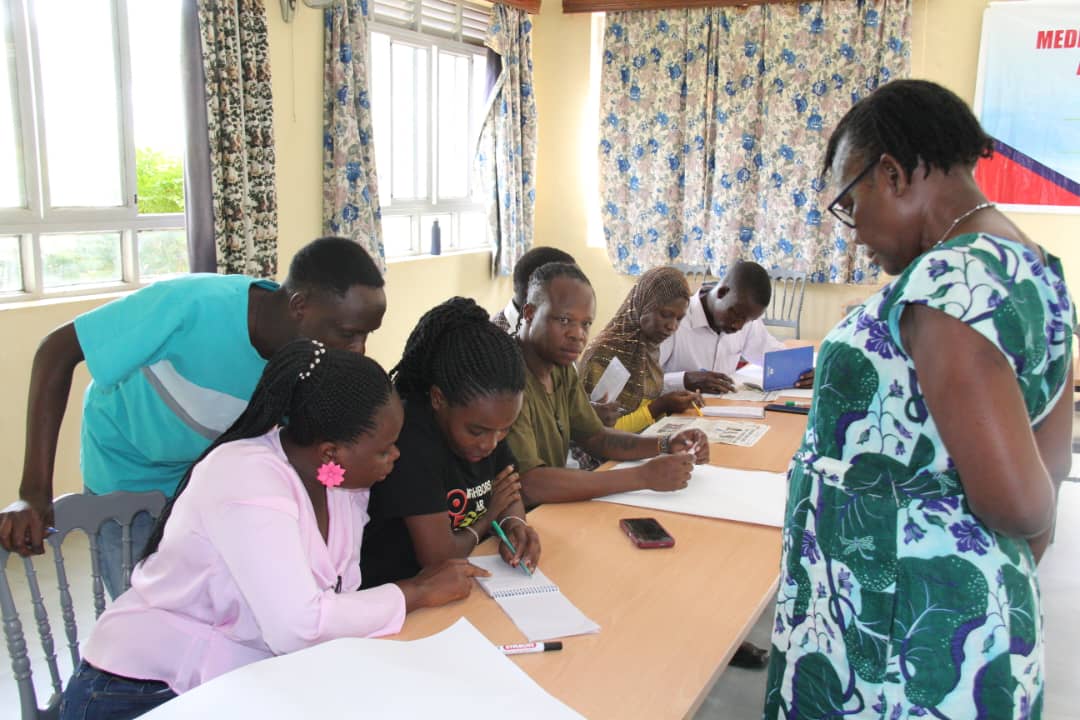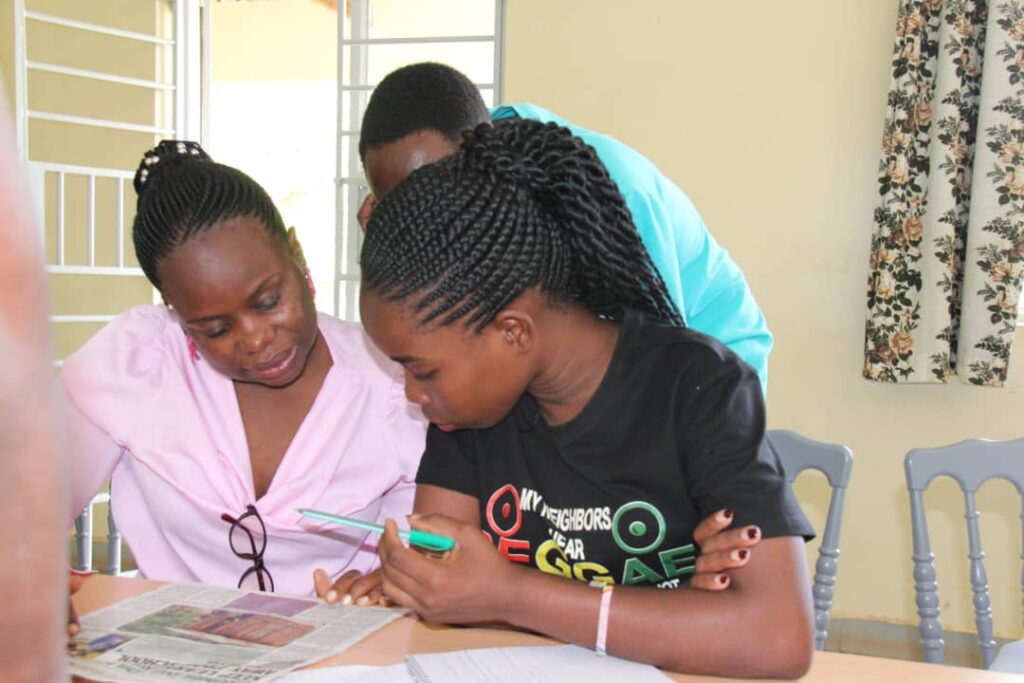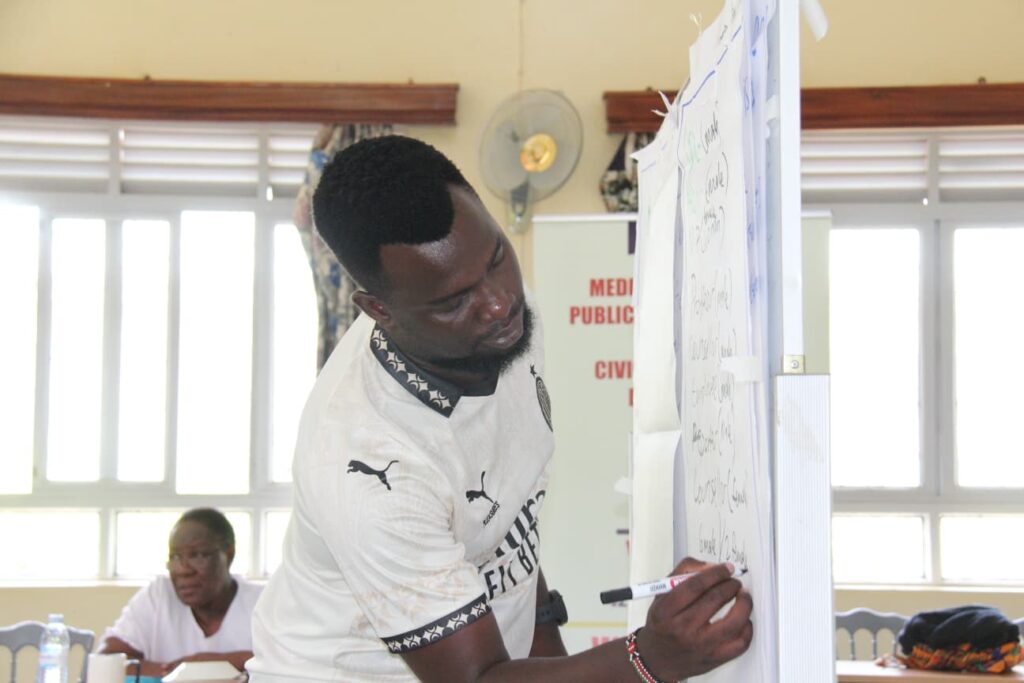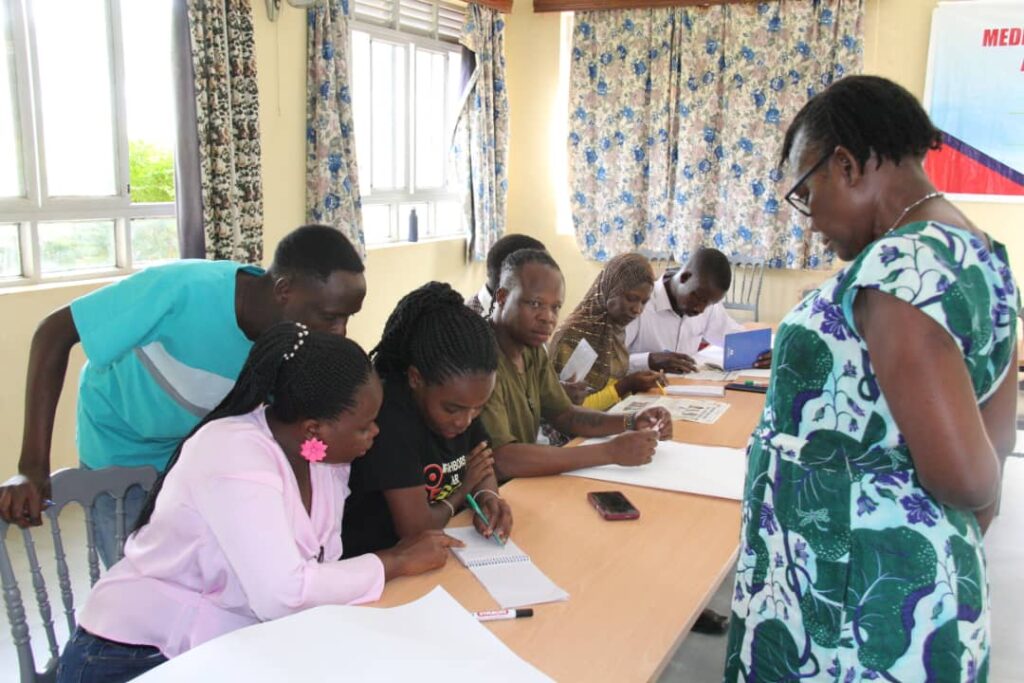
 Mama FM
Mama FM

 Mama FM
Mama FM
29 March 2025, 12:41 pm

By Byamukama Alozious
The Uganda Media Women’s Association (UMWA) conducted a two-day training session for journalists in Moroto, focusing on gender-sensitive reporting and public affairs accountability. Funded by the Royal Danish Embassy, the session aimed to equip local journalists with the skills necessary to produce more inclusive and diverse stories that reflect the voices of marginalized communities, particularly women
Facilitated by Paul Kabali, a journalist at UMWA and Mama FM, along with Cothilda Babirekere, UMWA’s Gender Officer, the training challenged journalists to analyze stories critically. One group examined a March 20, 2025, story from ‘New Vision’ titled “Crumbling Toilets Keep Learners Away from School.” The analysis revealed a lack of representation from learners and community members, with the story predominantly featuring authoritative figures with titles. Margret Ssentamu, UMWA’s Executive Director, emphasized the importance of inclusivity in reporting, stating, “Journalists should not only target sources with titles every time. They should be inclusive, ensuring a diverse mix of voices… Often, sources with titles don’t even read the stories.”
The training also focused on identifying gendered biases in news coverage. Some male journalists in the group argued that women in Moroto and Karamoja are shy, less educated, and primarily involved in grazing animals. However, female journalists countered these stereotypes, explaining that women are often not given opportunities to share their perspectives. One female journalist shared an experience where male journalists dismissed women’s contributions during a story, assuming they had nothing valuable to add.

Cothilda Babirekere, in her session, emphasized the need to understand the diversity of women’s experiences, urging journalists to apply patience and an extra gender lens when reporting on women’s issues. She shared a personal experience during a journey with male colleagues, where they stopped at a petrol station to ease themselves. While the men did so, she refrained, as the area was wet, and she feared for her vulnerable parts, worrying she might contract an infection. Cothilda highlighted this incident to underscore the importance of considering women’s specific needs when reporting and ensuring that spaces are safe and inclusive for all. “This is the kind of diversity journalists need to be aware of. We must create safer, more inclusive spaces for everyone,” she said.
In her unique technique of training, Cothilda also turned to the male journalists present and asked them to point out the “rights” they believe they have in Moroto. The male journalists identified several aspects, such as the right to drink, control family finances, communicate as they please, and even force young girls into marriage. Cothilda then pointed out how many of these perceived rights are in fact barriers to gender equality. She urged the journalists to critically examine these entrenched beliefs and explore how they hinder progress toward gender equality. “These so-called rights are actually hindrances to gender equality,” she stated. “As journalists, you have the responsibility to raise awareness on these issues and call out such practices in your communities.”

Maggie Lolem, the District Community Development Officer for Moroto and the chief guest at the event, expressed her appreciation for the training, noting that it addressed the challenge of women’s voices being silenced in the community. “I’m happy you’re giving them the training on gender safety, on how to bring out the voices of women who are still quiet… With time, they will speak up,” she said. Lolem also acknowledged the cultural struggles and patriarchal society in Moroto but expressed optimism that women would gradually gain confidence in sharing their stories.
Lolem further shared her concerns with journalists, saying, “I wake up and find many stories in the papers and on the radio, but I don’t know who consented, and sometimes the stories aren’t true.” She lamented that sensational journalism is often preferred, and highlighted an example where one media house falsely reported that Moroto had been invaded by jiggers, a story that wasn’t true. Instead, Lolem called on journalists to focus on the real issues affecting the area, such as child labor and the challenges in the mining areas of Rupa, as well as other important community concerns.
She encouraged journalists to build trust within the community, stressing the importance of professionalism and accuracy in reporting. “When you get these stories, please investigate, get the right information… Sit with the right source. People will trust you,” she said. She also emphasized the need for confidentiality and protecting marginalized groups, especially women, by ensuring their privacy when sharing their stories.
In discussing the importance of accurate and verified reporting, Lolem pointed out some stories sourced often lacked verification and could be misleading. She urged journalists to ensure the information they presented was both accurate and reliable.
Connie Osuru, the Project Coordinator for the ”M-Space Project”, highlighted that this training followed an assessment conducted in November 2024 to identify the training needs of journalists in the region. She emphasized that the training was supported by the Royal Danish Embassy, further reiterating its importance in promoting inclusive, gender-sensitive journalism in Moroto.
This initiative is part of the ”M-Space Project” in partnership with the African Center for Media Excellence, the Editors Guild, and Uganda Radio Network, and it reflects UMWA’s continued commitment to promoting gender equality in the media.